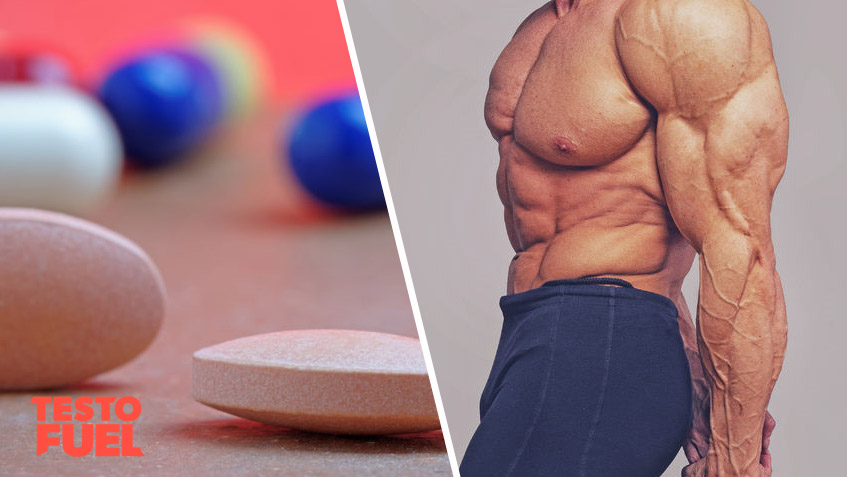TestoFuel Blog : Make Gains & Pack on the Muscle

Lipid lowering medications have been shown to prevent cardiovascular-related illness and improve life span. They have become one of the most widely prescribed families of drugs both in the US and world-wide.
But do statins have side effects that may affect your testosterone levels?
In this article we’ll take a look. Here’s what we’ll cover:
Statins are used extensively in cardiovascular disease prevention. Otherwise known as HMG-CoA reductase inhibitors, they are a class of medication that lower lipid levels in the blood, and as such, greatly reduce cardiovascular-related morbidity and mortality in patients with and without coronary artery disease [1].
According to the US Department of Health and Human Services [2], use of this drug rose from 18% to 26% between 2003 and 2012. In 2013, cholesterol treatment guidelines were changed in order to recommend HMG-CoA reductase inhibitors, in addition to general lifestyle changes, to treat high-cholesterol cardiovascular disease.
There are a number of drugs available on the market. These include simvastatin, pravastatin and atorvastatin amongst many others.
Whilst this medication is widely used throughout the US and worldwide, there has been controversy relating to potential side effects. Common side effects include headache, drowsiness, nausea, abdominal bloating and diarrhea.
In some cases, this medication can cause myopathy – muscle pain [3] – or in rare cases, extreme muscle inflammation and damage – referred to as rhabdomyolysis. This condition can make your muscles become painful and weak – a little bit like the delayed soreness you get from a big weights session, but more severe. This condition can lead to kidney complications if not treated.
Key Point: Statins are a widely used medication for cardiovascular disease.
The primary action of cholesterol-lowering drugs is to reduce blood cholesterol, leading to better cardiovascular health profiles. However, this action could potentially decrease testosterone levels by reducing the availability of cholesterol for androgen synthesis [4].
Testosterone and cholesterol are both classed as steroid hormones due to their structure. This makes them both sterols. Cholesterol is classed as the ‘parent compound’ of T as it is needed to form all steroid hormones via a process called androgen synthesis.
What this means then is that if cholesterol levels are reduced through medication, there may not be enough available to stimulate testosterone production. According to animal studies, cholesterol-lowering medication may inhibit sterol production in the testis [5].
For example, when rat Leydig cells – specialized cells of the testes that produce T – are exposed to different types of HMG-CoA reductase inhibitors, T levels decreased by 40% [5].
So could this type of drug have a negative effect your testosterone levels? Let’s have a look at what the studies say…
Key Point: The action of HMG-CoA reductase inhibitors is to reduce cholesterol, however cholesterol is needed for androgen synthesis of testosterone.
There are a huge number of studies on the benefits and risks of cholesterol-lowering drugs in relation to markers of cardiovascular disease. There aren’t as many that analyze its effects on T levels, but here is a breakdown of the most important ones:
In a large study of 3,484 men suffering from erectile dysfunction [6], both total and free T levels were found to be significantly lower in those taking statins. On top of that, the use of cholesterol-lowering medications was associated with smaller testes and decreased secondary sex hormones.
The authors of the study suggested that this drug may be a cause of hypogonadism – low testosterone levels characterized by an absence or reduction of hormones in the gonads.
In a paper from the University of California [7], over 1000 men and women volunteers were prescribed either cholesterol-lowering drugs or placebo over a 6-month period. The researchers primarily waned to assess changes to aggression, but also measured T levels as well.
The study found that whilst women volunteers saw an increase in aggression, males saw significant reductions.
Additionally (and possibly even the cause of reduced aggression), total T levels were lower in those that were prescribed pravastatin and even lower in those who were asked to use simvastatin.
Two years previous to this study, the same author published a similar study, this time in Circulation [8], detailing the effects of testosterone relative to lipid changes whilst taking HMG-CoA reductase inhibitors.
In this study, 694 men were asked to take one of two types of cholesterol-lowering drug or a placebo and observed over a 6-month period. The results found that simvastatin had a significant lowering effect on testosterone compared to placebo.
Lastly, cholesterol-lowering drugs have also been found to reduce male androgen levels in type 2 diabetics [4]. In one trial of 355 diabetic men, HMG-CoA reductase inhibitors were associated with lower total T levels (11.9 vs. 13.4 nmol/l), however bioavailable T was unchanged.
The researchers suggested that assessing androgen status using total testosterone in men with type 2 diabetes treated with statins, may potentially lead to diagnostic error.
Key Point: Research shows that statins can have a negative effect on testosterone levels.
Statin drugs are widely used throughout the US and worldwide for prevention of cardiovascular disease. Their primary action is to reduce blood lipid levels.
There may be side effects to the medication including headaches, nausea and drowsiness. In rare cases, adverse reactions include muscle pain or rhabdomyolysis.
Cholesterol-lowering medication may inhibit sterol production in the testes, as testosterone is formed directly from cholesterol. As such there is research to suggest that statins can lower T levels as well as have potentially negative effects on secondary sex hormones, size of the testes and aggression.